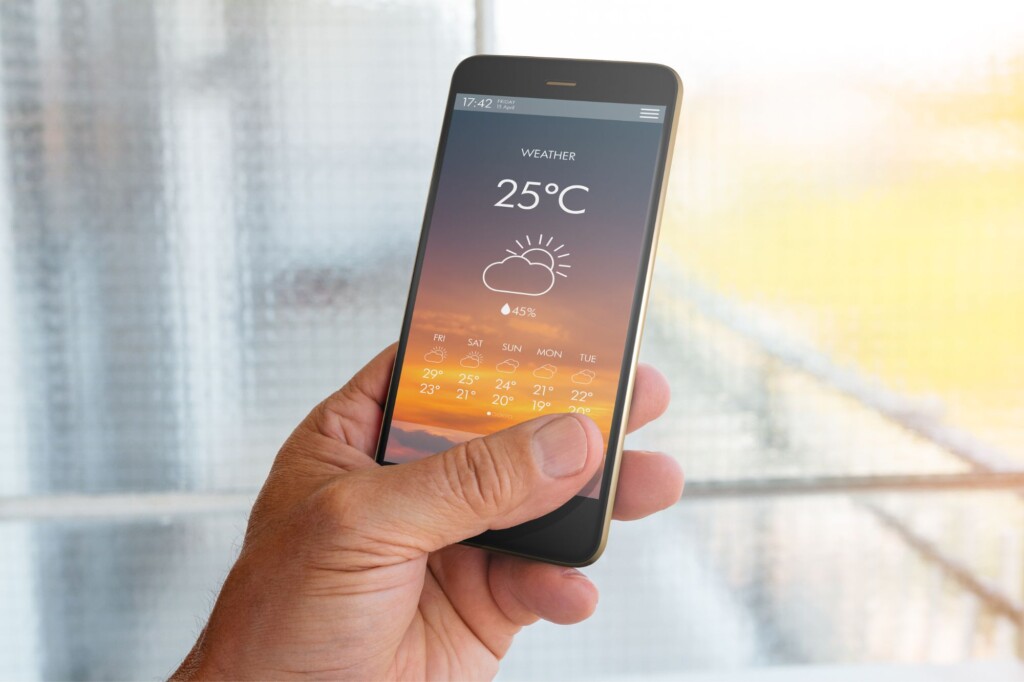Contributors: Kiyarash Khanessari, Daniella Lake, and Daniel Regalado-Ortiz
UCEAP Participants
Story highlights:
- Weather, money, language, phone plans—so many things to research!
- Tips and resources to use when researching your destination.
- All the things you need to think about before you leave the US.
Studying abroad comes with a whole list of things to research. For example, did you know it’s illegal to chew gum in Singapore? It’s also illegal to feed the pigeons in Venice—you could face a fine of hundreds of euros! Never step on Thai currency; it’s an insult to the country’s revered leader and a criminal act. No flushing the toilet after 10 pm in Switzerland either—it’s considered noise pollution (and also rude).
You’ll pick things up as you study abroad, and learn the ropes of your location, but researching some essentials about your destination in advance can help you stay safe, save money, and avoid some serious side-eye.
Let’s get started!
What language is used?
English is widely spoken around the globe, but it’s not universal. If English is your only language, try to discover how common it is in the country where you’ll be studying.
Type “is English common in [city, country]” into a search engine to discover the percentage of English-speaking locals.
Alternatively, if you’re studying the local language, do you have enough skill to manage conversations with locals?
What’s the weather going to be like?
Used to California’s climate? You may be shocked by and unprepared for some very different weather conditions while abroad.
Step 1: Learn about the weather
Start by finding out the average temperatures for the period you’ll be studying abroad. Type “average weather in [city, country]” into a search engine and you’ll see the basics:
- Average temperatures
- Rainfall levels
- Length of daylight hours
If you’ve never lived in subzero temperatures with only two hours of daylight, that would be a good thing to know before you pack for a region that can get super cold!
Although I researched the weather in Singapore, the humidity and heat were a shock. My dorm was on the opposite side of the campus from my classes and I ended up riding the campus bus every day— all the students did—because the weather would rapidly change from sunny to rain. There were many days when the weather would flip within an hour, which made it necessary to carry an umbrella at all times.
Daniel Regalado-Ortiz (UC Irvine)
Step 2: Determine how the weather will impact your experience
Think about how the weather conditions could impact your lifestyle and how you get around. For example, how will you exercise in very cold or very hot weather?
If you’re used to studying on campus at an outdoor café, you’ll have to adjust your study strategy if you go abroad, say, during typhoon season in Hong Kong or winter in Canada.
Step 3: Pack appropriately
Select and pack appropriate clothing for the weather conditions and activities you’ll be experiencing on study abroad.
Type “what to wear in [city, country]” into a search engine to get started on a packing list.
On the UCEAP website, see the About the Program section of a program’s information for specific activities you’ll be participating in.
Some examples: You’ll need a decent pair of hiking boots for the Volcanology Studies program in Sicily, and you’ll need plenty of swimwear for the Marine Biology program in Australia.
See How to Pack Light for Study Abroad for some packing strategies and tips. Also, don’t forget to pack a travel health kit.
What are the living arrangements?
Step 1: Research where you’ll live
Depending on the program, you may not know exactly where you’ll live before you go. If you do, however, it’s a good idea to learn as much as you can about the location, what’s nearby, where you’ll do laundry, and get exercise, etc.
Sites like Reddit were very helpful because there was a lot of information about the campus and dorms from other students. The dorm I chose had an Instagram page and that gave me a good idea what the living arrangements would be like.
Daniel Regalado-Ortiz (UC Irvine)
Open Google maps and type the address where you’ll be living. Look for the closest grocery store, coffee shop, and other places so you have an idea of where to go when you arrive.
Step 2: Figure out what you’ll eat
Now for the fun part … what are all the foods you’ll get to eat?!
If your program offers a homestay, some of your meals may be included in the living arrangements. Some dorms have meals included as well—but if not, what are your cooking skills like?
You may find it hard to get all the ingredients you’re used to, and then again, you’ll likely find ingredients you’ve never tried before.
Hint: Some programs have cooking classes as part of the cultural immersion.
If you’re a person who likes to cook with local ingredients, consider searching for new recipes to try. If cooking is not your favorite thing to do, search for restaurants near where you’re living and where you’ll be studying.
Step 3: Create a budget
The program estimates include a helpful roundup of personal expenses like metro tickets and shampoo, but the cost of things can fluctuate and your personal spending habits come into play.
Research what basic things like meals and bus tickets cost, then write a monthly budget for your stay.
What’s the best way to pay for things?
Did you know that cash (euros) is still the preferred payment method in most of Germany? In Canada and Mexico, the second most popular payment method is PayPal. If you’re used to tapping your smartwatch to pay at home, note that this method may not be available abroad depending on the region.
In Sweden, everyone taps their phone to pay. I never had to pull out a card, and no one uses cash.
Kiyarash Khanessari (UC Irvine)
Truly, there is no one-size-fits-all way to answer the question of the best way to pay for things, because there are so many factors at play and every region is different. That’s why destination-specific research before you leave the US is so critical.
Pro tip: Notice the term: “destination-specific”. Every country in the world—even different regions within the same country can have different rules about paying for things.
Step 1: Discover how locals pay for things
Start by typing “how to pay for things in [city, country]” into a search engine to find out how locals pay for things. You’ll learn things like:
- Unit of currency
- Current exchange rate compared to US dollars
- The most common ways to pay for things
Once you know those things, it’s time to talk to your bank.
Step 2: Contact your bank
Start with your own financial institution. Some banks offer ATM fee reimbursement (even internationally), while others don’t. Research credit cards that have rewards and no foreign transaction fees.
Also, be sure to inform your bank of the dates you will be living abroad. Otherwise, the bank may assume using your card in a foreign country is fraud and prohibit access to your funds. That’s not something you want to deal with after moving to a new country.
Finally, ATMs can be tricky abroad. Sometimes the cash withdrawal options are misleading, and you have to pay a transaction fee. Watch YouTube videos on the best way to get cash from an ATM in your host country.
Step 3: Watch the exchange rates
To track foreign exchange rates, check out XE.com. XE has a free app you can use to track destination-specific currencies against your home currency if you plan to visit multiple countries while on study abroad.
This research will tell you how far your money will go. Simply put, if the exchange rate for your host country is significantly lower than the US dollar, the more money you have there.
The converse is also true: If the exchange rate for your host country is significantly higher than the US dollar, your money will buy less (meaning you may have to scrimp a little).
Basic rules to follow
Here are some basic money rules to follow while abroad:
- Always have some local cash on hand in case you can’t use a card. Aim for enough to cover at least a days’ worth of transportation and meals.
- Always have a locally accepted card in case cash isn’t accepted as payment.
Find out if you have enough money to spend during the program to travel to other countries. I saved up a lot of money and got scholarships. If I couldn’t travel and saw everyone else traveling, it would have felt lonely and like I was missing out.
Daniella Lake (UC Berkeley)
What are the local scams and swindles?
Scammers and thieves are everywhere—in your home country too—so what you’re looking for are the unfamiliar situations that could confuse a visitor, like monks posing for pictures (and stealing your wallet) or elderly people falling down in front of you (and their counterparts snatching your backpack).
Type “common scams in [city, country]” into a search engine and select recent articles to see what you’ll want to watch out for.
Bonus points if you do the exact search for nearby countries or places you want to visit while abroad. That way, you’ll be prepared for weekend getaways too.
Make sure you don’t take anything with you that you’d regret losing. When I was traveling in Madrid, a group of individuals approached my group walking in the dark. One of them touched my shoulder and distracted me, while another suddenly ripped my necklace off! Law enforcement doesn’t work the same as it does at home and I was told simply “file a police report” when I called the emergency number in Spain.
Kiyarash Khanessari (UC Irvine)
What’s the best way to use your cell phone?
Mobile technology changes fast and the best way to use your cell phone can vary by country and plan. For example, in Europe, an e-SIM might be the cheapest and easiest option. In Japan, renting a pocket Wi-Fi device may be the best approach.
These are the options when it comes to staying connected while on study abroad, no matter where you go:
- Use your service provider’s international roaming (typically, the most expensive option)
- Buy an eSIM (data-only)
- Get a Google Fi plan (data-only)
- Buy a local SIM card (typically, the cheapest and most reliable option) and add as you go (usually monthly)
Careful! This information may not be up-to-date by the time you travel simply because cellular technology changes so rapidly. Stay in the know by doing your own research (possibly with your service provider).
Step 1: Find out how to use your cell phone abroad
To figure out how to use your phone while on study abroad, type “how to use my cell phone in [city, country]” into a search engine. You’ll learn things like:
- GSM or cellular frequency
- Compatible brands and networks
- Ranges of coverage (for example, some remote parts of Australia have little to none)
Your end goal is to stay connected and avoid international roaming charges. Travel writers and blogs can help you determine the best option. Look for the most current information you can find.
Pro tip: You can also contact students abroad on the UCEAP Study Abroad Discord.
Step 2: Decide your plan
Depending on the options available to you in the host country, you may end up:
- Buying or renting a temporary (“burner”) phone when you arrive
- Buying a SIM card (be sure you know how to change it! YouTube videos are helpful with this info.)
- Buying or renting a pocket Wi-Fi (portable Wi-Fi router)
- Buying an e-SIM or a plan like GoogleFi
In many countries, you’ll find a local SIM vendor right outside the airport—but your research will indicate what are the best providers. Always go with the most reliable and be wary of scams.
Step 3: Tell family and friends
Before you leave, be sure to tell your family and friends how they can reach you while abroad.
What’s going on during your stay?
There’s nothing worse than arriving in a new city, only to find out it is virtually shut down for a holiday you didn’t know about. Or to arrive the day after a wonderful local festival—when you could have made it.
Step 1: Discover the once-in-a-lifetime events you can’t miss
If you’re studying film making and studying abroad in Chile, for example, you won’t want to miss the Festival de Cine de Amor. Like Cannes and Sundance, it’s a multi-day festival dedicated to Latin fringe films from Spain, Colombia, and Chile.
Take the time to research what events are happening where you’re studying abroad.
You can do this by typing “what events are happening [city, country] in [month]” into a search engine.
You may decide to extend your study abroad adventure―before or after your program―to make the most out of the opportunities you won’t have at home.
My family visited after the program ended and it was very special because I was the expert in the location and could show them everything.
Daniella Lake (UC Berkeley)
Step 2: Research the local holidays
Look up the local holidays and what they mean. Study the local cultural and religious customs to determine how they may impact your stay. What if you land in Morocco, and it’s Ramadan, for example. You’d want to know that to be prepared.
Step 3: Follow the local news
Check the local news at least once a day—starting with before you go—to learn what’s happening. This can help you avoid situations that may interfere with your study abroad program.
This includes but is not limited to severe weather, protests, and strikes that can disrupt transportation and classes.
What’s the best way to get around?
Every city, big and small, has its own set of rules and quirks around public transportation. You’ll find this method of transit to be cheap, easy, and all around more efficient than anything in California.
You can also avoid uncomfortable encounters with locals by discovering the local rules of transportation ahead of time.
When I visited Paros, Greece, there was no app like Uber, so we kept the taxi driver’s phone number and called him when we needed a ride. There are different options in every country and if you don’t know them, you could end up walking a long distance in the dark!
Daniella Lake (UC Berkeley)
You may not know the exact location where you’ll live while studying abroad until close to the time you depart, but you can still get a head start on figuring out how you’ll get around.
You’ll want answers to the following ahead of departure:
- How do I get from the airport to my campus or housing? You can find this in the program guide that appears in the UCEAP application portal.
- How do I get to and from class? Most students in Rome, for example, walk gorgeous cobblestone streets to class; in Utrecht, they ride bikes.
- How do I pay for transportation? In Madrid, students can purchase transportation cards and ride all the public transportation options for a low fee.
- How can I have my special needs met? Start with the host institution’s website (listed in the program description) and talk with your UCEAP advisor.
- What are the societal rules for riding public transportation? For example, it’s against the rules to eat or drink on Tokyo subways and trains in Berlin.
- What side of the road does traffic use? For many students, not understanding this can lead to waiting on the wrong side of the road to catch a bus.
It’s important to understand how to use local transportation from day one. The first day I arrived in Singapore, I had to find my way to the immigration office to get my visa and move into the dorm. I’d been awake for over 15 hours already and it was a bizarre experience.
Daniel Regalado-Ortiz (UC Irvine)
Basic rules to follow
People are usually kind and willing to help strangers. It’s also important to be confident when taking public transport because passengers who appear confused are easier targets for thieves.
What are the local politics like?
Students who study abroad, especially those who have not extensively traveled out of the country prior, are often surprised at the difference in viewpoints and reporting around the US. This can be anything from enlightening to frustrating.
Choosing to study abroad means navigating life in a new country where information about healthcare, immigration, housing, privacy, and more comes into play. For example, it’s important to learn whether it’s safe and legal to engage in public expression about religion, gender, sexuality, or other potentially sensitive issues while abroad.
Even if you study abroad in a location where your personal values are in direct contradiction with a country’s governmental policies, studying abroad can still be a positive experience. You’ll better understand opposing values and have the opportunity to clarify or refine your own.
How will your identity be perceived?
Have you considered your identity(ies) and how they may be perceived when you study abroad? If not, now—before you leave—is the time to do so. It’s not only a personal safety concern—it’s about preparing for the most successful study abroad experience possible.
Here is a list of things to consider in your pre-study abroad research:
- What are the local attitudes on your race or ethnicity?
- How will locals react to your choice of religion or spirituality?
- How will locals react to your expressed gender identity?
Your research will suggest the opinions of locals and you can make good decisions about your personal safety.
Read about the choices one student had to make when studying abroad in multiple countries.
For me, studying abroad in a big city was the right choice. Even though there isn’t a big black population in Rome, the locals were welcoming. I visited eight European countries, along with Morocco, and I didn’t experience microaggressions or racism once in five months of study abroad.
Daniella Lake (UC Berkeley)
And then there’s arguably the biggest identity factor of all—being from America. Returning students often comment on how their American identity was the primary factor in how locals and students perceived them. This can be an epiphany—it’s not uncommon for students to return to the US having rediscovered, redefined, or more deeply clarified their identity as an American.
How will you take care of your health?
The UCEAP application process includes getting a health clearance. This is a process that results in a document that says you’ve consulted with a doctor about your:
- Vaccinations
- Medications
- Mental health
This is so that you’re prepared to manage any health issues that may occur while you’re away from the resources you usually rely on at home.
Getting outside your comfort zone is a valuable personal growth experience, and it can have the surprise side effect of triggering conditions that are well managed at home.
Here are the things you want to look up to have a productive discussion with your doctor:
- If you take any medications regularly, are those medications legal to take into your host country?
- If you have any specific allergies, are those allergens particularly prominent or hard to avoid in the host country?
- Are the medical facilities in the area you are studying abroad adequate for any health conditions you have and/or manage?
- What is the water and air quality like, and will it affect you while you’re abroad?
- Are special vaccinations necessary for your host country?
These are the topics to discuss with your doctor during the health clearance process.
What do you need to know to avoid serious side-eye?
And finally, research what you need to know to avoid serious side-eye. For example, did you know that in France, it’s considered rude to walk into a shop and not say bonjour (hello) to the staff? Or that in Thailand, you need to cover your shoulders and knees when entering a temple?
Simple hand gestures mean different things worldwide, and they can differ greatly from those you’re used to. Dig around on Reddit to learn how to avoid causing an international student incident where you’ll be studying abroad.















Leave A Comment